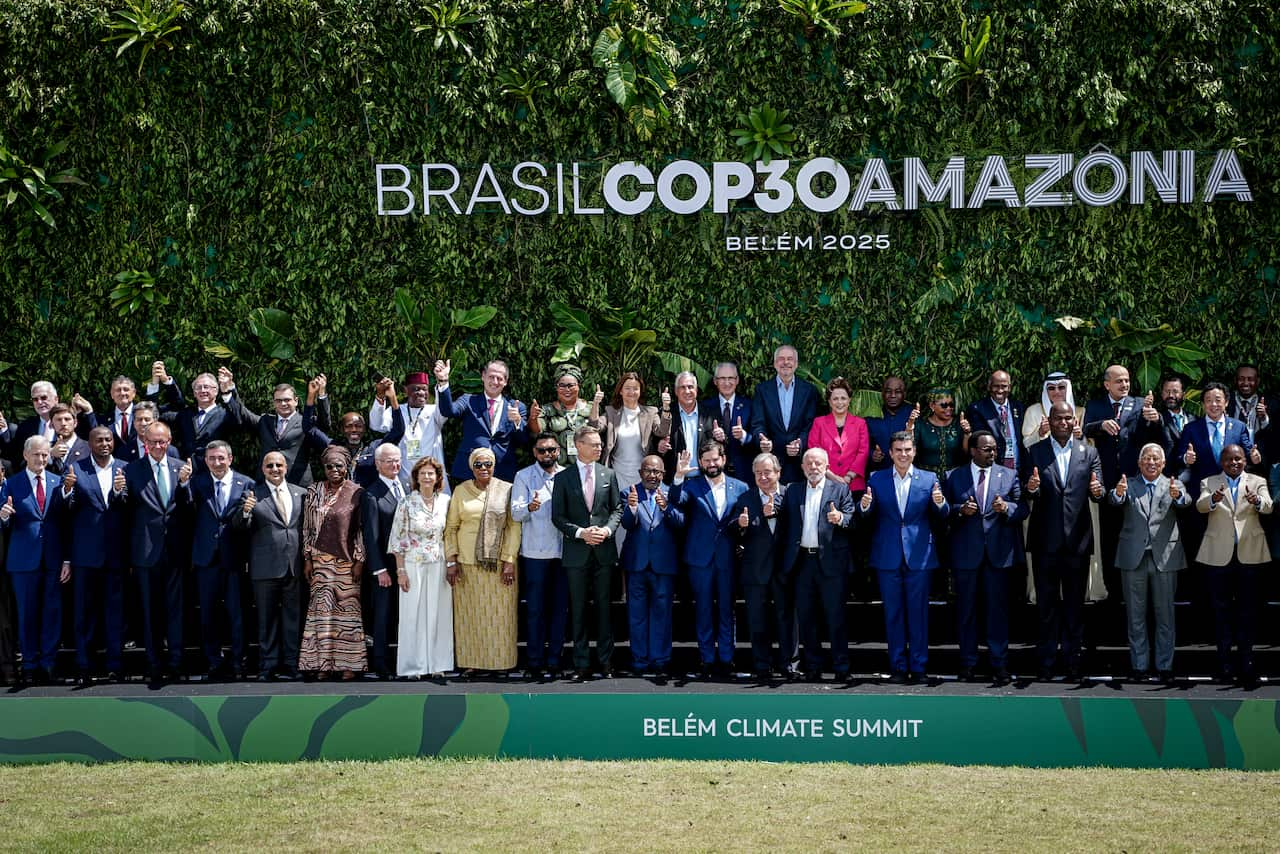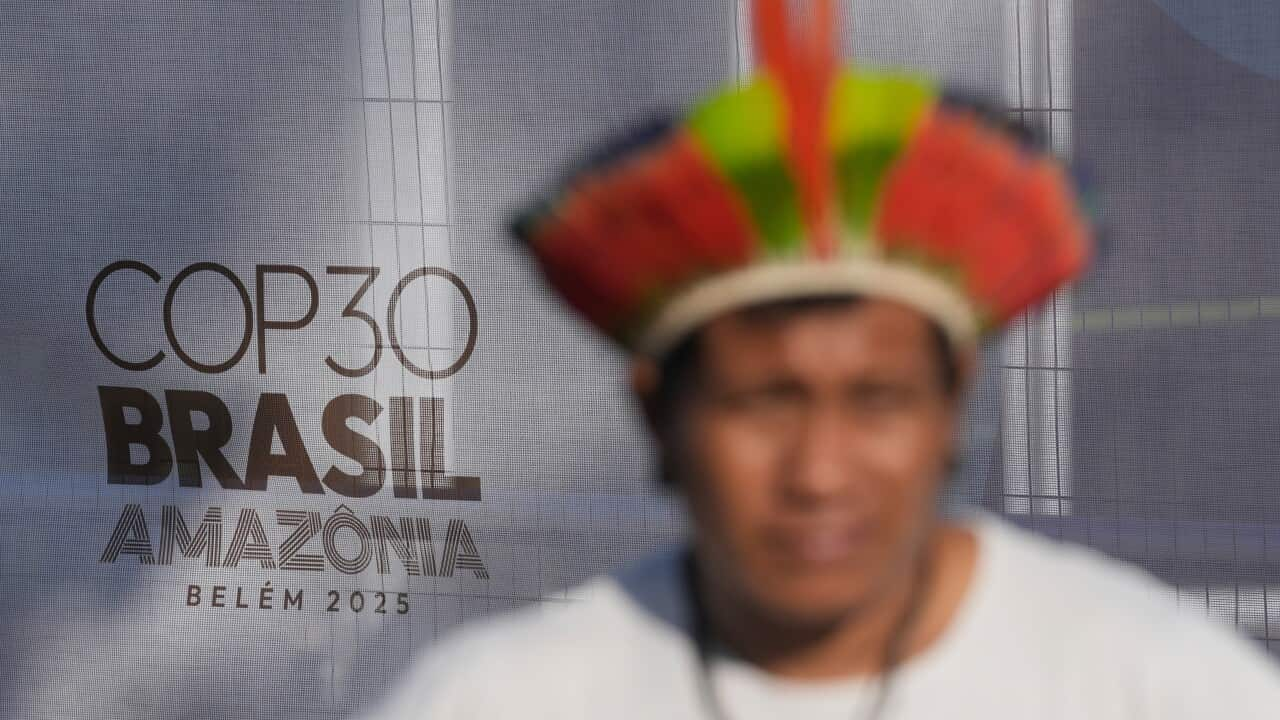This year's global climate summit is being hailed as the most significant in ten years, with experts describing the 2020s as the 'make or break decade' for action on global warming.
A decade ago, world leaders signed the Paris Climate Agreement to limit global emissions. Now, global leaders are meeting in Brazil for COP30, which will run from 10 to 21 November.
COP, which stands for Conference of the Parties, are annual meetings between nearly 200 countries that have signed the United Nations Framework Convention on Climate Change.

Executive director of Oxfam Brazil, Viviana Santiago, said expectations for this year's summit are high.
"We're talking to the world that it's time to make some change. We have this idea that it seems that the world's leaderships are really taking a nap while the world is on fire. So it's time to change, please wake up," she said.
While all parties and observers agree there's an urgent need for action, there are doubts over how much will be achieved.
Leaders of the world’s three biggest carbon polluters — China, the United States and India — are not attending and US President Donald Trump made his views on climate commitments clear at a meeting of the UN Assembly in September.
"Climate change, if it goes higher or lower, whatever the hell happens there's climate change. It's the greatest con job ever perpetrated on the world, in my opinion," Trump said.
The gateway to the Amazon
The location of the meeting is also a source of controversy.
A small section of the Amazon rainforest was cleared for a road so Belém could host the conference, at a time when Brazil continues to grant new licences for oil and gas exploration.
Belém is considered the gateway to Brazil's vast Amazon rainforest and Indigenous protesters gathered ahead of the climate summit.
A flotilla carrying Indigenous leaders and activists made its way down the Amazon River to the city, where the groups plan to deliver a list of conservation demands to world leaders.
The meeting also marks ten years since the Mariana dam collapse, Brazil's greatest environmental disaster, which released toxic mud that devastated local communities.
Indigenous leaders like Célia Xakriabá issued a warning that speaks to the urgency of environmental protection.
"Even as we understand the process of reparation, we recognise there is something you cannot bring back. You can’t bring back the 19 lives or the clean, healthy river," she said.
The goals of this year's COP
Forest protection will be a significant part of this year's COP, with the launch of a global fund to pay developing countries for every hectare of forest kept standing.
Brazil has also laid out a plan with other leaders to scale climate finance for developing countries to $2 trillion dollars.
However, the major focus is on emission targets.
Under the Paris Agreement, 195 countries have agreed to limit global temperature rises to 1.5C above pre-industrial levels, and well below 2C.
But the United Nations Environment Programme (UNEP) has warned the world is already on the brink of reaching 1.5C and beyond.
Greenpeace Australia Pacific COP31 leader Dr Simon Bradshaw said the continued rise in global temperatures is a wake-up call for leaders.
"When you add up all national climate plans, we're headed for under 3C of warming. Now, that's still catastrophic, and so we need to bend that emissions curve down much further and faster," he said.
While signatories to the Paris Agreement were supposed to submit updated targets for reducing greenhouse gas emissions in order to reach the 1.5C goal, only a third of parties have done so.
Based on those submissions, the UN projects emissions will fall ten per cent by 2035 — but that's still far short of the 60 per cent decline in emissions needed by the same year to keep global warming to 1.5C, according to the UNEP.
These shortfalls have led to tension about the desired outcomes of the summit, with some countries like host nation Brazil calling for a focus on delivering current pledges and others, like the Pacific Island nation of Palau, pressing for more ambitious commitments.
Australia has a target to reduce emissions by 62 to 70 per cent by 2035, which is slightly lower than Europe's goal of 66 to 72.5 per cent.
Australia's bid for COP31
Prime Minister Anthony Albanese has drawn criticism for not attending the summit this year, despite Australia bidding to co-host next year's meeting alongside Pacific Island nations.
Last week, Albanese wrote a letter to the President of Türkiye Recep Tayyip Erdoğan, who has launched a competing bid.
Hosting rights for the 2026 event will be decided during this year's COP summit and Bradshaw says Albanese's absence sends a confusing signal.
"If ever there was a moment for Australia, for the prime minister, to show up, this is it. Because we are an important player in the scheme of things, we're an influential middle power, we're a major energy producer; we really need to be there helping set an ambitious agenda," he said.
For the latest from SBS News, download our app and subscribe to our newsletter.

